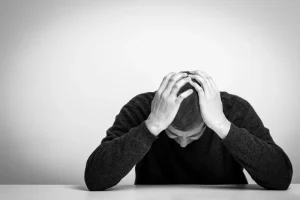
If setting your own ground rules isn’t possible, try to rely on relaxation techniques on your own time to compensate for some of the stress this may cause you. Research shows that those who have a mindful perspective are more able to focus on the present moment and turn their focus away from the stress of the past or anxiety over the future. This translates into a greater ability to let job stress stay at work and enjoy the time you have each evening and weekend to simply enjoy life. According to studies, participants who engage in leisure activities had higher levels of positive psychosocial states and lower levels of depression. Another study found that people who partake in leisure activities have lower stress levels and better stress-management skills. Get moving — working out releases endorphins, improves mood, regulates blood pressure, and reduces stress levels.
- During your hot shower, your blood vessels in your skin will fill with blood (think of that nice rosy glow you have post hot shower or exercise).
- For example, if you have a load of laundry, use each washing and drying load to time your breaks.
- Stress-induced apathy, irritability and depression can further affect a person’s ability to maintain healthy relationships, a healthy diet and an exercise regimen, says Dr. Pratt.
- With the right tips to unwind, you can create a more balanced and less stressful work environment.
- After scrambling to get the kids fed and off to school, dodging traffic and combating road rage, and gulping down coffee in lieu of a healthy breakfast, many people arrive to work already stressed.
- The key is to create a clear demarcation between work time and personal time.
- It’s very natural to seek emotional support when dealing with difficult co-workers.
Take a closer look at your stress

A recent 18-year prospective study published in the Journal of the American Heart Association sheds light on why professionals like Jay might be at risk. At Pragmatic Thinking we acknowledge First Nations people both here in Australia and around the world. Now that you’ve got some practical tips up your sleeve it’s time to put what you’ve learnt into action. Write a to-do list or journal your thoughts for five minutes.

Stress Management in Job Interviews: Answering the ‘How Do You Handle Stress?’ Question
Your desk chair swivels into a launching pad, ready to propel you from the chaos of your workday into the serenity of your personal life—if only you knew how to ignite the engines. In today’s fast-paced world, the line between work and personal life often blurs, leaving many of us struggling to find balance and peace. The ability to leave work stress behind is not just a luxury; it’s a necessity for maintaining our mental health, relationships, and overall quality of life. This comprehensive guide will explore strategies to help you achieve that elusive work-life balance, ensuring that your personal time remains truly yours. If you want to know how to de-stress after work but don’t want to have to make much effort, meditation might be just what you’ve been looking for.
One-Hour Stress Plan
- Yoga isn’t only a popular exercise for all ages, but it’s also gaining traction for decreasing stress, anxiety, and depression.
- So if you’ll excuse me now, my dog is demanding that I take him on a walk and pay attention to him instead.
- So, instead of eating dinner at the table why not pack it up and head down to the local park or your backyard?
- Our goal at Talkspace is to provide the most up-to-date, valuable, and objective information on mental health-related topics in order to help readers make informed decisions.
Consider taking a short walk around the block or engaging in a brief ritual that signifies the end of the workday. Finding the best stress relief strategies may take some experimenting. Watching the news, being constantly connected to your digital devices, drinking alcohol, and consuming too much caffeine are just a few of the things that may add more stress to your life. Making some changes to your daily habits could be instrumental in helping you feel better. This is referred to as problem-focused coping (as opposed to emotion-focused coping). Problem-focused coping involves taking steps to remove the stressor from your life (as opposed to changing how you feel about the stressor).
Cultivate Mindfulness
- For personal advice, please consult with a medical professional.
- Try to set aside quiet time to talk with your manager and calmly discuss feeling overwhelmed by challenging tasks.
- Adult coloring books have risen in popularity, and for good reason—coloring can be a great stress reliever.
💙 Use mindfulness to leave the worries of the workplace behind in this Letting Go of the Day meditation. Another fascinating result of regular exercise is that it gives your body the opportunity to practice responding to stress. Join an organization, attend a support group, or get professional help if you lack supportive people in your life. Walking, strength how to destress after work training, kayaking, hiking, and spin class are just a few different examples of ways you can get stress relief. Gratitude also reminds you of all of the resources you have to cope with stress, which can be quite empowering. Emotional eating and reaching for high-fat, high-sugar foods can provide a temporary sense of relief that adds to your long-term stress.
Mindfulness
Start by creating a daily or weekly to-do list, prioritizing tasks based on importance and urgency. Use techniques like the Eisenhower Matrix https://ecosoberhouse.com/ to categorize tasks and focus on what truly matters. Break large projects into smaller, manageable steps to avoid feeling overwhelmed.

How to De-Stress After Work: 11 Tips to Unwind

Executive stress management techniques can be particularly helpful for those in high-pressure roles. Before we dive into solutions, it’s crucial to understand what we’re dealing with. Work stress is the physical and emotional response to the demands and pressures of the workplace. It can manifest in various ways, from constant worry about deadlines to conflicts with colleagues or feeling overwhelmed by responsibilities.
